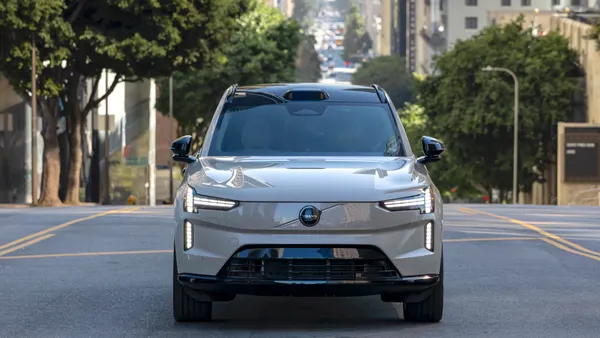Editor's note: This story is part of the WardsAuto digital archive, which may include content that was first published in print, or in different web layouts.
A reported deal to revise Canada-U.S. border-traffic regulations promises reduced transportation costs for auto makers and suppliers.
The agreement, which could be signed this month, calls for changes to a cross-border shipping process marked by varying degrees of delay since foreign terrorists struck on U.S. soil in 2001.
Traffic bottlenecks have occurred at land crossings between the U.S. and Canada as authorities struggled to balance security concerns with the need to maintain a steady flow of commercial traffic.
“Some of that security is quite valid and legitimate,” says Steve Rodgers, president of Canada's Automotive Parts Manufacturers Assn. “But it definitely still is creating delays. And that adds to the shipping cost, which adds to the cost of components, which has a tendency to make us uncompetitive at a time when we're fighting in a global market.”
The time-sensitive nature of cross-border shipping was highlighted recently by the impact of severe weather in Ontario, center of Canada's auto industry and a key trading partner for Michigan and Ohio.
Vehicle production was lost on both sides of the border. Affected were Canadian plants run by Honda of Canada Mfg. Inc., Ford of Canada Ltd. and Toyota Motor Mfg. Canada Inc.
General Motors Co., Chrysler Group LLC and their Canadian subsidiaries have suffered disruptions on both sides of the border.
Goods crossing the border each day are valued at more than $1.6 billion, Canadian officials estimate.
Is there room for improvement in managing commercial border traffic?
“Absolutely,” says Stan Korosec, vice president-operations for the Blue Water Bridge Authority.
The Blue Water Bridge is about 60 minutes north of Detroit and links Port Huron, MI, with Sarnia, ON.
Korosec says the system for monitoring the flow of goods would benefit from harmonization, noting each country maintains separate programs — Customs Trade Partners Against Terrorism (CPAT) in the U.S., and Partners in Protection (PIP) in Canada.









